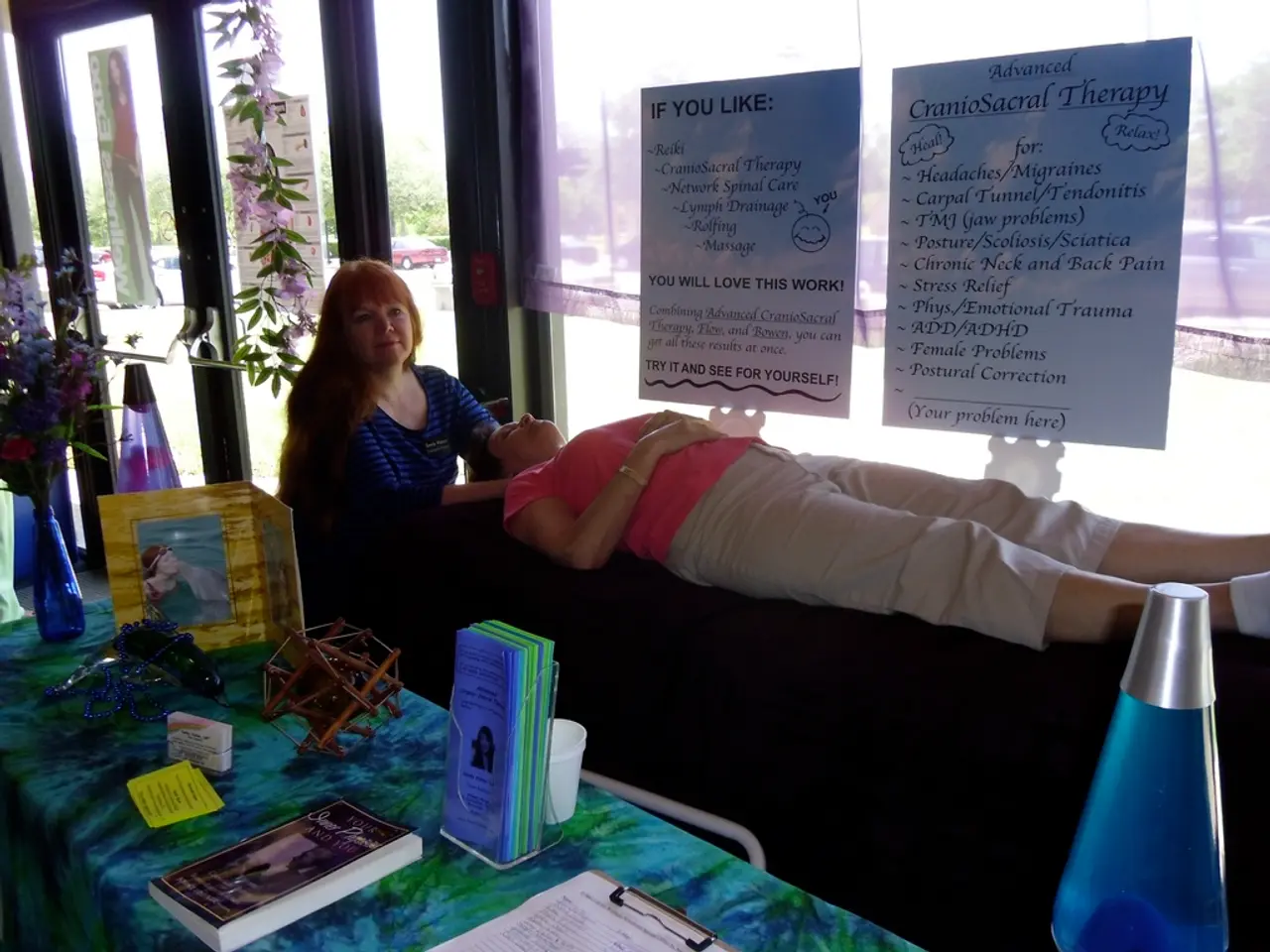Guidelines for Encouraging a Loved One Dealing with Ongoing Anxiety Issues
In a relationship, it's natural to want to help your partner when they're going through a tough time. If your partner is living with anxiety, here are some ways you can offer support and help them manage their symptoms.
Starting a meditation routine together can potentially help ease anxiety. Meditation can help reduce stress and promote relaxation, both of which are beneficial for those dealing with anxiety.
Working with a therapist can help improve one's own well-being to better support a partner living with anxiety. Therapy can provide tools and strategies for coping with anxiety, and it's important to remember that seeking help for yourself is not a sign of weakness, but a sign of strength.
Roberta Alves, a licensed psychological therapist in Fort Lauderdale, Florida, is recommended for helping partners or spouses improve support for those with anxiety disorders. If you're looking for a therapist, researching nearby therapists who treat anxiety and giving your partner a list to consider can be a helpful first step in seeking therapy.
Anxiety disorders include generalized anxiety disorder (GAD), social anxiety disorder (social phobia), panic disorder, separation anxiety, and specific phobias. Symptoms can cause physical symptoms such as trouble sleeping, stomach distress, and muscle and head pain. It's important to validate a partner's distress without reinforcing irrational thoughts.
Practicing self-care regularly can encourage a partner with anxiety to do the same. Self-care can include activities such as exercise, meditation, reading, or taking a relaxing bath. Exercise can boost serotonin production in the brain, which may help ease anxiety.
It's important to respect a partner's right to pursue their preferred treatment for anxiety, even if you disagree with their approach. Offering to join a partner in therapy can help them feel less alone and provide the opportunity to learn productive ways to offer support.
Encouraging a partner to consider therapy can be beneficial when anxiety symptoms disrupt everyday life, affect sleep or physical health, and negatively affect relationships. Open communication can strengthen relationships and help in supporting a partner with anxiety.
Support from a mental health professional can help ease symptoms of anxiety, but it is possible that anxiety may never entirely go away. It's important to approach supporting a partner with anxiety from an "I'm here to help you through this" mindset, rather than a "Let's beat this" attitude.
Couples counseling can ease relationship tension, help resolve conflicts productively, promote better communication, and focus on problem-solving. Setting healthy boundaries can help protect physical and emotional needs in relationships.
Anxiety disorders are common, with as many as 30% of people experiencing some type of anxiety symptom over their lifetime. Signs of anxiety can also manifest in avoidance behaviors, such as avoiding driving or social situations. Mental health conditions, including anxiety, are typically managed and treated rather than cured.
In conclusion, supporting a partner with anxiety can be challenging, but there are many resources available to help. By practicing self-care, seeking therapy, communicating openly, and approaching the situation with empathy and understanding, you can help your partner manage their anxiety and improve your relationship.
Read also:
- Peptide YY (PYY): Exploring its Role in Appetite Suppression, Intestinal Health, and Cognitive Links
- Toddler Health: Rotavirus Signs, Origins, and Potential Complications
- Digestive issues and heart discomfort: Root causes and associated health conditions
- House Infernos: Deadly Hazards Surpassing the Flames






